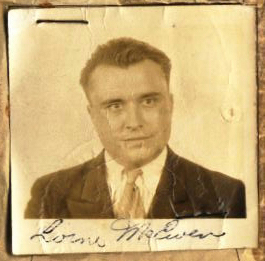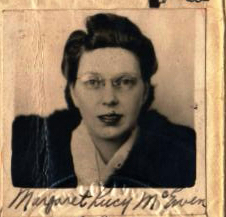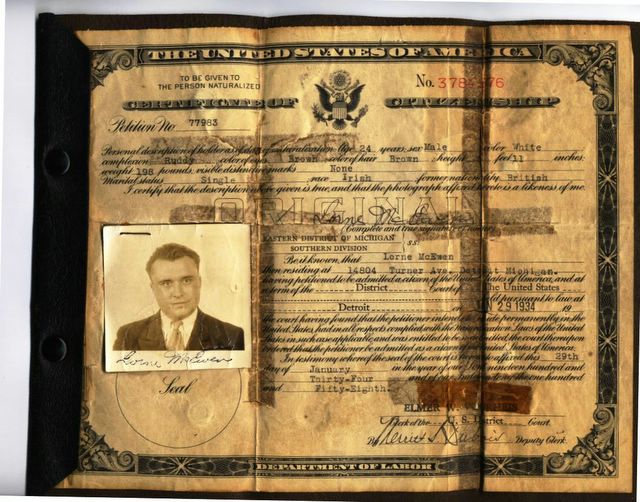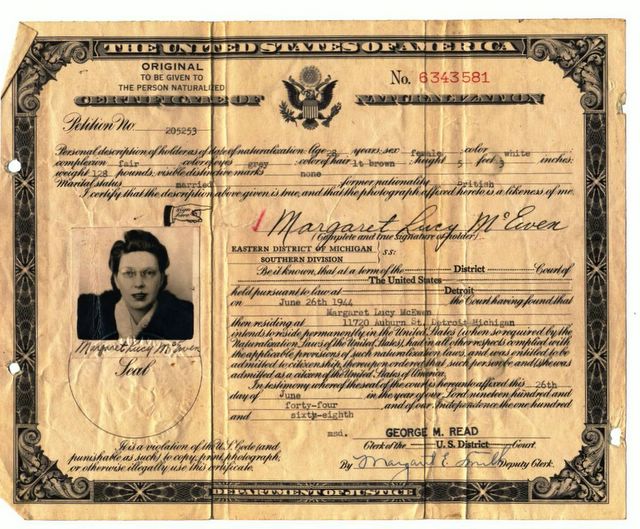Coming to America
Here are pictures of my paternal grandfather and grandmother.

My grandfather’s was taken in 1934 when he was 25. My grandmother’s was taken in 1944 when she was 28. The pics are from these documents. 

Their citizenship papers.
Family history is always a little interesting. I haven’t reached the point where I look back too much. My father is currently scanning hundreds of family pictures form the 1910 to present. That doesn’t interest me at all, but one day I'm sure it will.
Looking at the pics, I’m try to place myself in their shoes. First grandpa. Look at that hairline. He’s only 25 and it looks like an old man’s to me. Thing is, that’s the same hairline he had when he died in his 80's. He still had some black in his hair even.
My thoughts though, go to where his mind was when he decided to become a US citizen. The documents lists his “race” mistakenly as Irish. I’m not sure how they define things back then, but his father (my great grandfather) was from Perth, Scotland. It further lists his nationality as British. He was from a farm in Dauphin, Manitoba, thus (at that time) British.
I'd like to think all immigrant experience is like that Niel Diamond song, but it isn't. In 1934 the US was still in the depression. The shadow of the British Empire still spread over the world. Why did he give us British citizenship to become a citizen of the US. Yes, the US was a powerful country then, but young (and still is). I can’t imagine myself becoming a citizen of, say, Ecuador, just because jobs were plentiful. I can understand though an Ecuadorian becoming a US citizen. I’m sure that it was all economic, but he didn’t have to become a citizen to work at Ford’s River Rouge plant, did he?
At the time of my grandmother’s citizenship, she was 28. She had two children by then and my father was to be born 2 years later. It’s 1944 and she’s giving up her British citizenship to become an American. From my experience with the Canadian side of my family, there’s still a certain looking to England as the home country. I’m sure it had to be more so in 1944. I had a great uncle, a RCAF flyer, (yes, at one time Canada did have a military and was able to defend itself) grumpily tell me once that while the US dithered, he was fighting the Luftwaffe over London. How did it feel to her to give up that citizenship and tie to her family while London smoldered? When there was the really big fear of her new home of Detroit being bombed? She died at 52 from cancer while my parents were dating. She wasn't talked about much around me.
What went through these people’s heads? I’ll never know. We aren’t a family that asks questions like that of each other. I’m just glad they made the decisions they did or most likely I’d be very cold on a Manitoban wheat farm.
Back to Main Page



<< Home